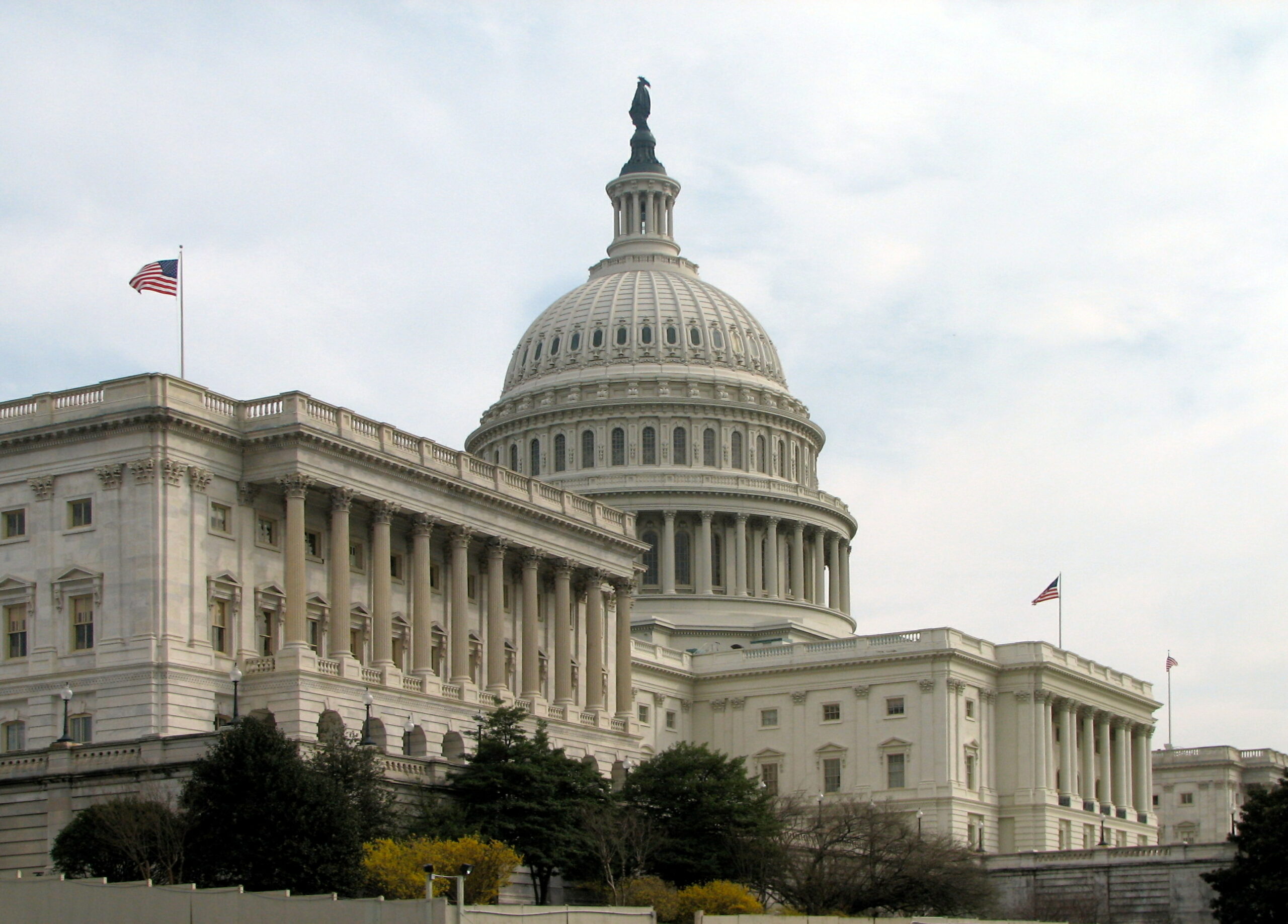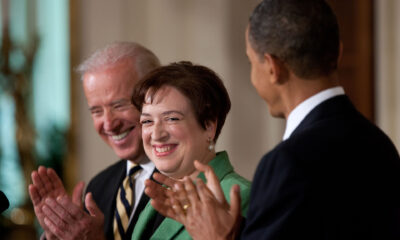Guest Columns
Caucus Cash: How Black and Hispanic Leaders Raise Millions From Big Business

Like-minded members of Congress have created hundreds of caucuses to help them work on specific issues – including the Arthritis Caucus, the Freedom Caucus, the U.S.-Japan Caucus, the Special Operations Forces, and the Bipartisan Candy Caucus.
Big Caucus Cash for the two most prominent caucuses
But two of them – the Congressional Black Caucus and the Congressional Hispanic Caucus – stand out for the unparalleled fundraising they do through independent but closely aligned nonprofit arms. Filled with current members of Congress and representatives from some of America’s largest corporations, the Congressional Black Caucus Foundation and the Congressional Hispanic Caucus Institute operate outside of normal campaign finance laws to raise millions of dollars each year.
Websites and tax returns for the two nonprofits say they are designed to provide scholarships and opportunities to minority students and promising businesses. But records show they spend a much smaller percentage of their revenue on those programs than they do on salaries, fundraising, and hosting conferences.
“What you have is a very cozy relationship that complies with the law, yet it’s elected officials and corporations working together and there’s lots of money involved,” said Joe Postell, a professor of politics at Hillsdale College. “It claims to be philanthropic but it’s obvious it’s just another avenue for special interest money.”
And it’s a lot of money.
The Congressional Black Caucus
The Congressional Black Caucus Foundation raked in more than $45 million between 2020 and 2022, the last full year for which figures are available, and that includes the down year in which the COVID pandemic shutdowns crippled the U.S. economy. During that stretch, Foundation revenues increased nearly 89%.
But only a fraction of that appears to be spent on the programs it trumpets. For example, in 2022, the foundation brought in $18.4 million, and of that total, it spent more than $16 million, or 86%, on staff salaries and benefits, management fees, fundraising, and conferences, records show. Its fundraising cost in 2022 – $5.4 million – was more than double the $2.5 million it reported spending on scholarships.
In April, the foundation received a $4 million donation that it says is earmarked for college scholarships.
Still, that amount is less than the foundation spends on salaries. In the COVID year of 2020, when fundraising reached $9.8 million, the foundation spent nearly $3 million on compensation and benefits for staff and just $525,000 on scholarships, according to tax returns. In 2022, it spent close to $5 million on salaries, records show.
The Congressional Hispanic Caucus
The Congressional Hispanic Caucus Institute also raises large sums. Between 2020 and 2022, it took in $30.5 million, tax records show, in many cases from the same Fortune 500 players that give to the Congressional Black Caucus Foundation.
Of its $12.5 million raised in 2022, the institute spent $7 million, or 56% of its revenue, paying staffers, holding an annual conference, and for travel, records show. The $4.4 million the institute paid its staff that year was more than it spent on fellowships and interns combined.
The Congressional Black Caucus Foundation and the Congressional Hispanic Caucus Institute aren’t the only nonprofits linked to congressional caucuses, but others, like the Republican Main Street Partnership which raised less than $2 million in 2022, are nowhere near as big financially.
Both groups say their nonprofits are completely separate entities from their namesake caucuses. However, eight House Democrats serve on the board of the Congressional Black Caucus Foundation – which is chaired by Rep. Terri Sewell of Alabama. Four House Democrats and one Democratic Senator, Ben Ray Lujan of New Mexico, serve on the board of the Congressional Hispanic Caucus Institute. The advisory council for the institute includes an additional 38 officeholders – including one Republican delegate to the House, Jennifer Gonzalez-Colon of Puerto Rico, and three Democratic senators, Bob Menendez of New Jersey, Catherine Cortez Masto of Nevada, and Alex Padilla of California.
How the principals apologize for the big rake-off
RealClearInvestigations reached out to all the lawmakers serving on the boards of the foundation and the institute, but only one of them responded to the request for comment.
Rep. Adriano Espaillat of New York, who is deputy chair of the Congressional Hispanic Caucus and chair of the institute, said the organization has a proud history and that it provides real opportunities for young Hispanics.
“Latinos are 65 million strong in the United States. Our mission at CHCI is to ensure they are empowered and informed,” he said. “Our work lays the foundation for academic and educational achievement for our youth through programs like the congressional fellowship that provides young people the opportunity to gain invaluable experience interning in Congress and setting the foundation for careers in public service and beyond.”
Those elected leaders serve on boards filled with executives from some of the nation’s biggest companies. The foundation’s board of directors includes executives with Walgreens, Coca-Cola, Microsoft, and Fidelity Investments. Its corporate advisory council has featured executives with Altria, Lyft, Amazon, Bank of America, and the Daschle Group. The foundation’s Vice Chair, Chaka Burgess, is president and C.E.O. of a D.C. lobbying firm, Nation Strategies.
Big business names
The institute’s board includes figures from Altria, the American Federation of Teachers, TikTok, and Walmart. Its Vice Chair, Leo Muñoz, is the Executive Director of Federal Governmental Affairs for Comcast Corporation.
Many of these companies – most of which have a keen interest in laws and regulations coming out of Washington – also provide substantial funding to the nonprofits. Amazon and Truist Financial Corporation both gave between $1 million and $4 million to the foundation in 2022, according to the nonprofit’s annual report.
The report also says that Meta (Facebook), Johnson & Johnson, and State Farm Insurance each contributed between $300,000 and $500,000 to the foundation in 2022 and Airbnb, Bank of America, and Google, gave between $100,000 and $299,999. Altria, Dell, and Microsoft are among the dozens of companies listed as having given smaller sums.
It’s unclear how much many of those same companies and others donate to the institute because it does not publicize the amounts donors must give to belong to various “circles.” In 2020, however, the minimum donation to join the institute’s “1978 Circle,” the lowest rung, was $50,000.
RCI reached out to more than a dozen companies that contribute millions to the nonprofits. None of them responded to a request for comment.
Bringing Congress Members and outside interests together – deliberately
Almost all elected officials receive money from and meet with representatives of interest groups. But, critics say, the foundation and institute break down the often-shaky wall separating legislators from outside interests by specifically bringing these parties together in a common endeavor.
“Both of these caucuses are heavily skewed toward liberal lawmakers who bemoan corporate greed and ‘dark money’ in politics, but a cursory look shows how closely tied they really are,” said Adam Andrzejewski, the CEO and founder of OpenTheBooks, a group that seeks sunlight on government spending.
“This mutual backscratching is no doubt standard Beltway fare, but it is routinely met with outrage from lawmakers in these caucuses,” he told RCI. “Despite their rhetoric, it’s obvious both caucuses have nonprofit partners that routinely tap wealthy corporations for their own private interests.”
The Congressional Black Caucus Foundation’s Annual Legislative Conference
The nonprofits offer other avenues of access to powerful officials. The foundation’s Annual Legislative Conference in September, for instance, draws business executives, entertainment icons, and elected officials to the capital.
For days, Washington D.C.’s convention center is a maze of exhibits, sponsored by not only emerging African American companies but also the biggest names in tech, finance, insurance, and more. Last year, both President Biden and Vice President Kamala Harris attended the main dinner, and the opening seminar featured Sean “P Diddy” Combs speaking about black entrepreneurship as well as hip-hop. The keynote speech was delivered by Kristen Clark, the head of the Department of Justice’s Civil Rights Division.
Beyond its marquee names, organizers of the annual conference boast of the opportunities it provides for face time with elected officials and top appointed figures in Washington’s sprawling and powerful bureaucracy who make legislative and regulatory decisions that impact markets and competition.
“There’s no other opportunity in the country for constituents to have this kind of front-facing, direct contact with elected officials,” CBCF president and CEO Nicole Austin-Hillery boasted to MSNBC last year.
But that’s far from the only event the foundation holds, suggesting there are other opportunities for black lawmakers to mingle with donor companies. Next month, a branch of the foundation will hold a conference in Atlanta and then a scholarship tournament at the Hyatt Regency Chesapeake Bay Golf Resort in Maryland.
Where does the money come from?
Putting on such spectacles isn’t cheap. The foundation spent more than $1.1 million putting on the 2022 annual conference, according to tax records.
The millions flowing to these nonprofits come from the Fortune 500, Big Tech, Big Pharma, emerging Internet businesses, white shoe law firms, unions, and other nonprofits. The foundation and institute were separated from the caucuses in 1976 and 1978 respectively, to comply with campaign finance regulations.
Yet hardly anyone – from the lawmakers and the corporations that bankroll their nonprofits; from the nonprofit groups themselves to the political advocacy groups that complain the loudest about money’s corrupting influence in American politics – wants to talk about it.
RCI also reached out repeatedly to both the foundation and the institute, asking to speak with officials there about the organization’s history, work, and fundraising. They did not respond.
Political advocacy groups, largely on the left, that bang the loudest drums over money’s potentially corrupting influence, also proved unwilling to comment on this nonprofit arrangement by which congress members and corporations are entwined.
People for the American Way, the Campaign Legal Center, and the Brennan Center for Justice did not respond to questions from RCI. The foundation’s current chief executive, Nicole Austin-Hillery, came to the foundation from the Brennan Center.
One nonprofit breaks ranks
Not all those groups have always been so reticent to address the issue. When The New York Times looked at the foundation’s extraordinary fundraising among corporations in 2010, the Campaign Legal Center’s then-policy director offered a blistering take.
“The claim that this is a truly philanthropic motive is bogus; it’s beyond credulity,” Meredith McGehee said. “Members of Congress should not be allowed to have these links. They provide another pocket, and a very deep pocket, for special-interest money that is intended to benefit and influence officeholders.”
McGehee is now with Issue One, another group concerned about the influence of money in federal lawmaking and regulation, and Issue One views the setup with a jaundiced eye.
“Special interests look for every available avenue to gain access and influence with members of Congress, including contributions to nonprofits affiliated with lawmakers like the Congressional Black Caucus Foundation, Congressional Hispanic Caucus Institute, and Asian Pacific American Institute for Congressional Studies,” Issue One research director Michael Beckel told RCI. “Giving to these types of nonprofits allows deep-pocketed special interests to curry favor with members of Congress. Such contributions are yet another arrow in the quiver of the influence operations of special interest groups, along with traditional campaign contributions, lobbying expenditures, and bankrolling political ads.”
Companies bankroll nonprofit leadership
In some cases, corporations with an interest in specific issues are bankrolling people placed in the nonprofits. The Scotts Miracle-Gro Foundation gave the Congressional Black Caucus Foundation between $300,000 and $500,000 in 2022, tax records show. Scotts, the fertilizer giant, sponsors two foundation fellows who are focused on “marijuana legislation.”
Scotts also did not respond to a request for comment. But the company has made its interest in marijuana legalization clear. While Scotts is currently prohibited from selling cannabis to consumers, it did invest $150 million in RIV Capital, a “leading cannabis consumer packaged goods platform.”
Such close cooperation between the caucus and big business can smack of crony capitalism, according to Postell.
“Even if you don’t have a smoking gun, of course, but you can see the money going into the caucus’ nonprofits and then see favorable legislation coming out,” he said. “Anybody would be concerned about that.”
Companies are much more willing to donate big bucks to black and Hispanic caucuses than they might be to outfits like Republican Main Street, Postell said.
“This also provides a way for Fortune 500 companies to show off their diversity intentions,” he said. “They are trying to promote their own interest, but whereas they don’t gain a lot of PR points giving to some other groups, they do gain points by giving to the identity groups.”
This article was originally published by RealClearInvestigations and made available via RealClearWire.
James Varney is an author at RealClearInvestigations.
-

 Accountability3 days ago
Accountability3 days agoWaste of the Day: Principal Bought Lobster with School Funds
-

 Civilization23 hours ago
Civilization23 hours agoWhy Europe Shouldn’t Be Upset at Trump’s Venezuelan Actions
-

 Executive2 days ago
Executive2 days agoHow Relaxed COVID-Era Rules Fueled Minnesota’s Biggest Scam
-

 Constitution3 days ago
Constitution3 days agoTrump, Canada, and the Constitutional Problem Beneath the Bridge
-

 Christianity Today22 hours ago
Christianity Today22 hours agoSurprising Revival: Gen Z Men & Highly Educated Lead Return to Religion
-

 Civilization2 days ago
Civilization2 days agoThe End of Purple States and Competitive Districts
-

 Executive1 day ago
Executive1 day agoWaste of the Day: Can You Hear Me Now?
-

 Civilization5 days ago
Civilization5 days agoThe Conundrum of President Donald J. Trump









